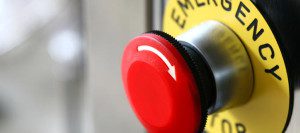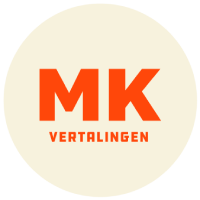Companies that manufacture machines or parts of machines will need to comply with the European Machinery Directive. The directive came into force on 31 December 2009 and its aim is to harmonize the rules for the sale of machines in Europe. Here, the health and safety aspects are important; all machines in Europe must comply with a number of health and safety requirements that have been set out in the Machinery Directive.
You can find the contents of the Machinery Directive here.
Is it mandatory to comply with the Machinery Directive?
Yes, it is mandatory to comply with the directive. A directive from the European Union is legally binding for the states that belong to the EEA (European Economic Area: all countries of the European Union, Liechtenstein, Norway and Iceland) and its inhabitants. As stated in the European Directive, each Member State must include the requirements in their national legislation. In the Netherlands, the Machinery Directive is included in the Commodities Machinery Act.
How can you identify whether a machine meets the Machinery Directive?
A so-called CE Marking is attached to the machine. CE is French for ‘Conformité Européen’. In addition to this marking, there also needs to be a certificate of conformity; this indicates the directive/s with which the machine complies.
What does the Machinery Directive have to do with translations?
The Machinery Directive requires that the machine is accompanied by a user manual in the language of the country where it will be put into operation, as well as the operating manual which must be in the original language. If a Dutch manufacturer exports his machine to Germany, then the technical documentation (i.e. at least the user manual and a certificate of conformity) must be translated into German. The documentation in both the original Dutch language, and in German must be supplied with the machine. By way of derogation from this requirement, it is permitted to include the maintenance instructions intended for the specialist staff of the manufacturer, or his authorised representative established in the Community, to be drawn up in only one of the Community languages understood by this staff. Very often, these are specific setup and maintenance instructions, to which users have no access.
 The language spoken in my company is English, and the official language used by my customer in France is also English. Do I still need to translate the user manual?
The language spoken in my company is English, and the official language used by my customer in France is also English. Do I still need to translate the user manual?
Yes, you do, as the machine operator may not master the English language or has a poor understanding of the English language. This guideline has been drawn up to ensure the machine operator’s safety. So, if English is not one of the officially recognized languages of the country of import, then the user manual must be translated. Dutch is the official language in the Netherlands. In Belgium, this is French or Dutch.
Who is responsible for the translation? The manufacturer or the company that imports the machine?
The manufacturer established within the EEA is fully responsible for the safety of his machine. In the event of derogation from the requirements of a directive, penalties may be imposed, ranging from fines to recalling the machine from the market. The party importing the machine is allowed to facilitate the translation, but the manufacturer remains responsible!
Who is responsible for the machine when the machine is manufactured outside Europe?
The European importer is responsible and liable; he cannot pass on any legal liability to manufacturers located outside the EEA. The directive mentions ‘the manufacturer or his authorised representative established in the Community’. In practice, this means that the person importing a machine from outside the EEA is responsible for ensuring the machine complies with the European Directive/s.
Am I the only company that does not translate its user manuals, even though I should?
Unfortunately, there are many companies with products that fall within the Machinery Directive who have failed to make a correct translation. They are taking the risk that their company may be held liable and that the safety of the operator of their machine abroad is compromised! Also, a potential customer can refuse to buy the machine when a user manual in the relevant language is not available. Especially in Germany and the Scandinavian countries, many companies are aware of the relevant European legislation.
